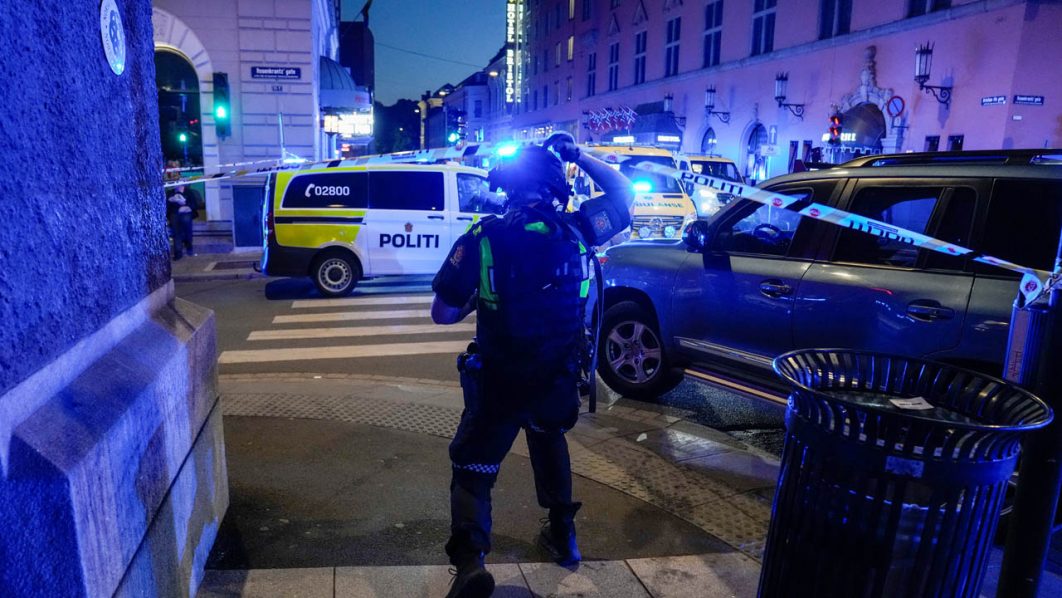Norwegian cross-country skier Therese Johaug won the first gold medal of the Beijing Olympics on Saturday as sport moved centre stage after a troubled build-up dominated by coronavirus and rights concerns.
Johaug was a comfortable winner of the women’s 7.5-plus-7.5-kilometre skiathlon, taking what is likely to be the first of many cross-country skiing medals for Norway at these Games.
The 33-year-old was almost ruled out of the Olympics before she travelled to China when she was classified as a close Covid contact after two of her Norwegian teammates tested positive.
“At first I was really happy just to come here because we have the Covid in our team,” Johaug said after finally winning an individual Olympic title at her third Games.
“I’ve trained thousands of hours for this and been away from home a lot over the years so it’s beautiful to reach this goal.”
Dinigeer Yilamujiang, a 20-year-old Uyghur who was chosen by China as one of two athletes to light the cauldron in Friday’s opening ceremony, finished 43rd in the skiathlon race.
Yilamujiang’s inclusion in a ceremony watched by a worldwide television audience placed her at the centre of long-time controversy over rights abuses in China’s Xinjiang region.
Campaigners say China has incarcerated at least one million people from mostly Muslim minorities, notably Uyghurs, in “re-education camps” in Xinjiang.
The United States, Britain, Canada and Australia are among countries staging a diplomatic boycott of the Games over China’s rights record, and particularly the fate of the Uyghurs.
Asked whether the inclusion of a Uyghur competitor in a ceremony featuring several generations of Chinese athletes met the International Olympic Committee’s standard of political neutrality, IOC spokesman Mark Adams said she had “every right” to participate.
“As you’ll know from the Olympic Charter, we don’t discriminate against people on where they’re from, what their background is,” he said.
“I think the concept of having all the generations there was a really excellent one.”
The snowflake-themed opening ceremony in the “Bird’s Nest” was dazzling but less spectacular than the extravaganza that brought the curtain up on the Beijing Summer Olympics in the same stadium 14 years ago.
– White bowing out –
Shaun White, the American snowboarder who has defined his sport, announced he would retire after competing in Beijing at his fifth Olympics.
White, three times a gold medallist in the halfpipe, said there were “little signs” that his 35-year-old body was telling him time was up.
“It’s this now, it’s that now — it’s all these little things adding up that’s taking away from days of practice that I would normally have,” he said.
Later Saturday, Canadian freestyle skier Mikael Kingsbury will attempt to win the gold medal for a second consecutive Olympics in the bone-shaking moguls event under floodlights in Zhangjiakou, just outside Beijing.
Then on Sunday, Norwegian skier Aleksander Aamodt Kilde is the favourite in the high-speed men’s downhill — traditionally one of the highlights of a Winter Olympics.
Kilde’s skier girlfriend Mikaela Shiffrin meanwhile admitted she would be disappointed to leave Beijing without a medal, but the American warned it was impossible to have a flawless Games.
Shiffrin is one of the headline acts at Beijing 2022 as she pursues a third gold after triumphing in slalom at the 2014 Sochi Games and giant slalom four years later in Pyeongchang.
“I’ve never in my life had three weeks where I had no regrets and no disappointment,” Shiffrin said.
“At the Olympics it’s impossible to have the perfect two weeks.”
– Covid having impact –
The Games are taking place inside a vast “closed loop” bubble designed to thwart Covid-19.
The nearly 3,000 athletes and tens of thousands of support staff, volunteers and media have been cut off from Beijing’s general population.
There have been more than 350 Covid cases in the bubble, among them an unknown number of athletes.
Germany’s three-time Olympic nordic combined champion Eric Frenzel will miss his first event on Wednesday because he tested positive on arrival in Beijing, his team said.
China, where the virus emerged in late 2019, has pursued a no-nonsense zero-Covid policy and adopted the same approach to the Games, with everyone inside the bubble tested daily and required to wear a mask at all times.
Follow our socials Whatsapp, Facebook, Instagram, Twitter, and Google News.








